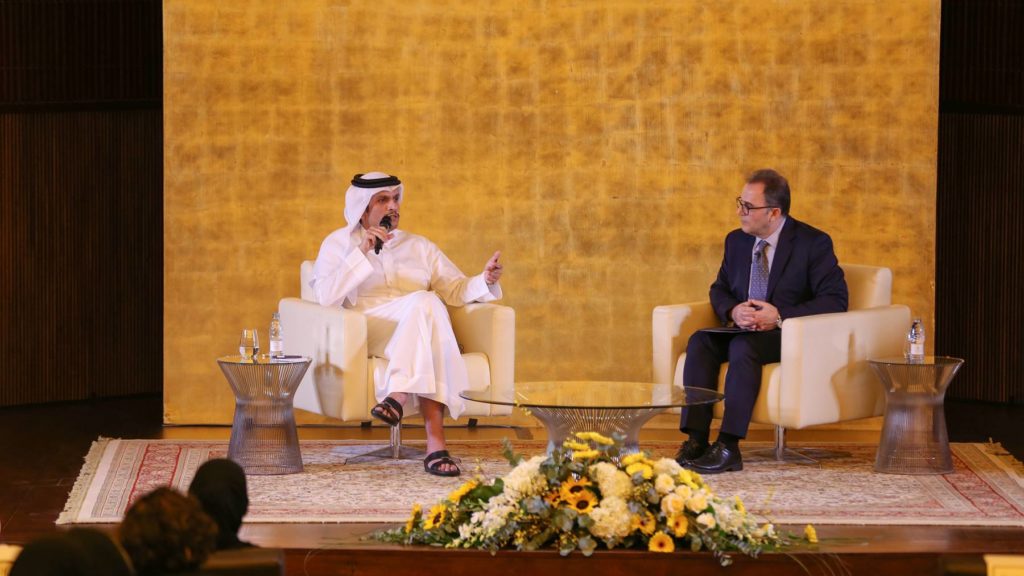The Deputy Prime Minister and Minister of Foreign Affairs Discusses Qatar’s Foreign Policy at Georgetown

Georgetown University in Qatar hosted the Deputy Prime Minister and Minister of Foreign Affairs, His Excellency Sheikh Mohammed bin Abdulrahman Al-Thani, for a public discussion on the ongoing Gulf crisis, Qatar’s economic and foreign policy priorities, and the future of Qatar’s multilateral relations.
“We are very proud of GU-Q, which has achieved 440 graduates as of now. Twelve of these graduates are working for us in the Ministry of Foreign Affairs, and were part of the team that worked during the blockade. We are also very proud of the diversity of the GU-Q campus, which has now had more than 50 nationalities studying here,” said H.E. the Deputy Prime Minister and Minister of Foreign Affairs.
The event on April 2, 2019, was organized in collaboration with The Ambassador Society, a student organization dedicated to developing leadership skills through community engagement and participation in official campus activities. GU-Q sophomore Amna Salatt introduced the guest speaker, as well as the discussion moderator, Dr. Ahmad Dallal, the dean of GU-Q.
Remarking on the significance of the visit, Dean Dallal said: “For our students of international affairs, this was an invaluable opportunity to engage with a distinguished leader in Qatar’s foreign policy establishment, and to gain first-hand understanding of the power of diplomacy and the importance of building multilateral relationships in a globalized world.”
H.E. the Foreign Minister addressed the successful strategies adopted by the State of Qatar to ensure national security and alleviate the humanitarian cost of the blockade. “Without the support of the home front, the support of our citizens and our expat community, we would not have been as successful meeting the challenge of the crisis. We appreciate the contributions of our diverse society and the vital role they will continue to play in the future development of the country.”
Describing the siege imposed on Qatar as a turning point for geopolitics in the whole region, H.E. the Foreign Minister added that “The only way forward will be through the negotiation table. And this will only happen when these countries realize that a blockade isn’t the answer to their concerns, whatever those concerns are.”
In response to the audience’s questions about the future of the Gulf Cooperation Council (GCC), H.E. stressed the importance of the GCC as a framework for regional cooperation and coexistence.
H.E. the Foreign Minister answered a number of questions regarding the future of the energy sector, the development of new security arrangements based on cooperation, and the impact of Georgetown’s international affairs curriculum on building human capital in Qatar.
H.E. the Foreign Minister also discussed his work as Chairman of the Qatar Fund for Development (QFFD), a public development institution that is committed to improving the lives of people and communities worldwide. “Last year, QFFD helped 71 countries and dispersed around 585 million dollars. And of that, 30 percent has been on education. Because if we want a stable future, we need to invest in the tools people will need to achieve it.”
The Provost of Georgetown University in Washington, D.C., Dr. Robert Groves, and the Dean of Georgetown’s Edmund Walsh School of Foreign Service, Dr. Joel Hellman, were in Qatar for the GUQ100 celebration of the university’s research collaboration with Qatar Foundation, and joined an audience of Education City students, faculty and staff, members of the diplomatic community, and the public at the campus event.